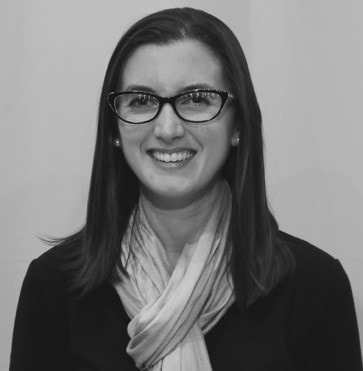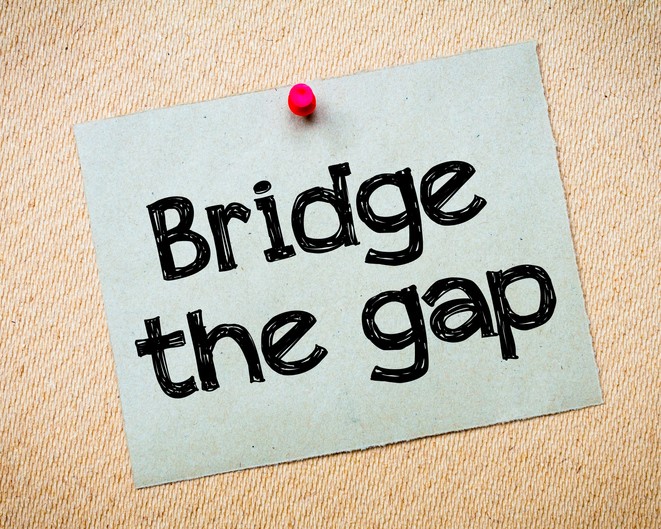/ News Posts / Bridging the Gap between Music Teachers and Administrators
Bridging the Gap between
Music Teachers and Administrators
By NAfME Member Sarah Morong, sponsored by QuaverMusic
The key to a successful music program is not just the teacher, or even the curriculum, but the professional relationship between the music teacher and school administrators. I often hear statements from colleagues such as, “My principal doesn’t understand what we do in the music classroom,” or “School administration is not supportive of my program.”
Classroom observations are one of the only times when administrators get a glimpse into the music classroom. A printed lesson plan helps teachers give administrators a better idea as to what they are observing. However, they still may not know what to truly look for in the context of the music classroom.
As a band director working on my Masters of Music Education degree, I decided to examine this topic as my Masters research project. I hoped my research would help “bridge the gap” between music teachers and school administrators by answering the following questions:
- How do school administrators and music teachers see their music program supporting the school community?
- What can music teachers do to help school administrators better understand challenges in observing music classrooms versus non-performing arts classrooms?
To complete the project, I conducted two surveys: one with music teachers and one with administrators. The surveys gathered data on the respondent’s district, school, teaching situation, their perceptions of the music program’s contribution to the school community, and information regarding classroom observations. There were 109 ensemble music teachers who chose to participate, and out of the 33 surveys sent out to administrators 23 responded. The 21 questions fell into three different categories: demographic questions, questions regarding how the music program contributes to the school community, and questions regarding the classroom observations of the music teacher.
Data showed that both teachers and administrators viewed the music program as benefiting their school community in a positive way. Additionally, both groups believe that the music program benefits students by giving them a creative outlet, is part of a complete education, and brings the school and community together. However, many of the teachers felt there was a lack of understanding of music vocabulary and pedagogy by their administrators. This became a stumbling block during conversations about classroom observation and curriculum.
When asked, “What can music teachers do to help school administrators better understand challenges in observing music classrooms versus core content classrooms?” most administrators wrote that the music content/vocabulary was a challenge in their observation. Most music teachers answered that they wish their administrator knew more about the music curriculum or music instruction, in order to provide relevant feedback. If administrators do not have a clear understanding of music content and vocabulary, then it may be helpful for the teacher to be observed by a master music teacher or a guest clinician, along with the administrator.
“Administrators visiting music classrooms on a more frequent basis would help develop a better understanding with regard to music pedagogy, possibly leading to increased dialogue between teacher and administrator.”
The keys to moving forward are communication and understanding. Administrators need to be forthcoming about what they do not know regarding music and not be afraid to ask questions about the content or pedagogy. Music teachers need to be patient and willing to explain their lesson plans thoroughly, along with music content and pedagogy, to help administrators be more effective when giving feedback. Also, administrators visiting music classrooms on a more frequent basis would help develop a better understanding with regard to music pedagogy, possibly leading to increased dialogue between teacher and administrator.
Recommendations Based on the Responses Received
to the Administrator and Teacher Surveys
Based on the responses I received from administrators and teachers, here are a few ideas on how you can bridge the gap in your school.
Question 1: How do school administrators and music teachers see their music program supporting the school community?
Based on survey data, school administrators and music teachers both agree that the music program…
- Gives students a creative outlet
- Is part of a complete education
- Brings the school and community together
A good music program is one that offers many opportunities for students to get involved. The more students who are involved the greater the impact the music program has on the larger school community.
- Ideas:
- Music Composition
- Music Technology
- Jazz Band
- Guitar Club
- Music History & Music Theory
- Piano
- Show Choir
Administrators want a “team player” on their staff, who is involved beyond the school day.
- Ideas:
- Performing at school and community events
- Participating in professional organizations
- Attending conferences and clinics
- Collaborating with local colleges
- Offering students extra opportunities after school
- Participating in a school committee (PBiS, School Improvement, Scheduling, Mentor Program, etc.)
Question 2: What can music teachers do to help school administrators better understand challenges in observing music classrooms versus core content classrooms?
Most frequent survey response: Music vocabulary/content is a stumbling block to providing effective and meaningful feedback.
- Ideas:
- Add context to your lesson plan through custom notes
- Bring a music vocabulary sheet to your observation meetings
- Consider creating the opportunity to observe a master music teacher or bring in a guest music clinician
- Ask for release time to attend music conferences and/or clinics
- Invite administrators into your classroom, to your concerts, and to community events–the more they see what you do, the deeper their understanding of what goes on in your music classroom
- Communicate!
Communication is an important part of any professional relationship. Taking the time to sit down and discuss music classroom expectations is a great place to start. In my own teaching, I have found QuaverMusic’s online resources make it easy for me to engage students in the opportunities that administrators want to see. I can also easily adapt lessons (and printable lesson plans) to meet my district’s unique needs, and better communicate to administration, through custom lesson planning. My hope is that this research would encourage teachers to embrace one or more of these suggestions and will help “bridge the gap” between music educators and administration.
About the author:
 Mrs. Sarah Morong is in her third year as the 5th Grade, 6th Grade, and Jazz Band Director in Bensenville District 2, a K-8 school district in the northwest suburbs of Chicago. Mrs. Morong completed her undergraduate degree in Instrumental Music Education and Flute Performance at Hope College in Holland, Michigan. She has taught everything from K-5 general music, high school marching band, middle school percussion, beginning band, high school guitar, and a music technology course. In July of 2017, Sarah graduated from VanderCook College of Music in Chicago, Illinois with a Masters Degree in Music Education. Last November, Mrs. Morong presented her Masters Degree research at the 2018 NAfME Conference in Dallas, Texas. Sarah currently holds memberships with the National Association for Music Education (NAfME), the Illinois Music Education Association (ILMEA), and the Illinois Grade School Music Association (IGSMA).
Mrs. Sarah Morong is in her third year as the 5th Grade, 6th Grade, and Jazz Band Director in Bensenville District 2, a K-8 school district in the northwest suburbs of Chicago. Mrs. Morong completed her undergraduate degree in Instrumental Music Education and Flute Performance at Hope College in Holland, Michigan. She has taught everything from K-5 general music, high school marching band, middle school percussion, beginning band, high school guitar, and a music technology course. In July of 2017, Sarah graduated from VanderCook College of Music in Chicago, Illinois with a Masters Degree in Music Education. Last November, Mrs. Morong presented her Masters Degree research at the 2018 NAfME Conference in Dallas, Texas. Sarah currently holds memberships with the National Association for Music Education (NAfME), the Illinois Music Education Association (ILMEA), and the Illinois Grade School Music Association (IGSMA).
Did this blog spur new ideas for your music program? Share them on Amplify! Interested in reprinting this article? Please review the reprint guidelines.
The National Association for Music Education (NAfME) provides a number of forums for the sharing of information and opinion, including blogs and postings on our website, articles and columns in our magazines and journals, and postings to our Amplify member portal. Unless specifically noted, the views expressed in these media do not necessarily represent the policy or views of the Association, its officers, or its employees.
Published Date
May 7, 2019
Category
- Careers
- Music Educator Workforce
- Quality
Copyright
May 7, 2019. © National Association for Music Education (NAfME.org)







